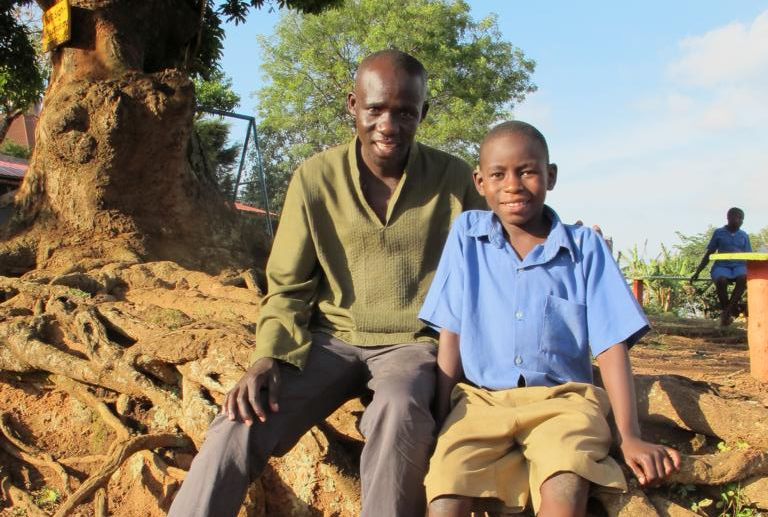Thumbs up for an open society (Part 2)
“The weeks he had spent in captivity, and especially the images of the murdered disabled, did not let him go, they changed his life.
“I didn’t just want to be a teacher. I wanted to work with disabled people. So, I switched to special education and became a teacher for blind, hearing impaired and physically disabled children. I enjoyed it a lot. I learned the basics of sign language and braille alphabet. I often encountered the reluctance of parents to engage with their child with all his/her idiosyncrasies. Many were afraid to do something wrong. Some feared being excluded from society. I tried to encourage them. But, I had no idea what these people were going through. That was true until I was affected myself.”
On a visitor’s day at his school, he met his future wife. She was the sister of a colleague, and Samuel was captivated by her immediately. They first met in the church, later in a small café. He met her parents and then, a year later, they decided to marry.
” … we had our first child, a son.”
Rafael was a healthy, lively boy. But at two months old, he contracted cerebral malaria. He received medical treatment in hospital and the fever receded, but something had changed. He was unresponsive to his environment. Samuel knew immediately that something was wrong with his hearing. But doctors initially said he might still be too weak to respond. Samuel did not believe the doctors, because Rafael did not yet react to the voices of his parents.
“I remember clapping my hands quietly, then more and more loudly, in front of his bed, but there was no reaction. Eventually I had a glass shatter just in front of his bed, but he remained still. Panicked, I travelled with him from one doctor to the next, but tests clearly showed that he was completely deaf. I was told that some malaria drugs can cause irreversible hearing damage. The shock sat deep. But I also thought it could have been worse. After all, I was a special educator and knew a little bit about the subject. What I had no idea at the time, however, was what hell was still to come.”
The news that the son of a special educator was hearing impaired quickly made the rounds. At first, people reacted as you might expect. How can that be? In hospital? Medicine as a cause? Then the mood changed slowly but noticeably.
“… I learned by chance how rumors were making the rounds. My family is cursed. … There was one or the other who advised my wife to just drop the child while crossing the river Nile. She was visibly unsettled by this ‘advice’ and I became angry. It was our child! Deaf or not, it had a right to be in this world and to be loved by us!”
… Eventually his wife left him, she could no longer resist the pressure and gossip. Now Samuel was alone with Rafael. He was forced to quit his job as a teacher because he had to take care of his son around the clock.
…
Since he did not want to hide his son from society, he carried him through the streets and across the market square during the day. It was a rare sight, because a Ugandan man walking with an infant on his arm is considered a weakling. Hardly anyone addressed him directly. Everyone kept their distance from him, as if he had a contagious disease or as if he were cursed.
“At that time, I was still very religious. I sought solace in the Church. But even there, I was met with suspicion. That made me angry. And I decided to preach myself, for tolerance and against superstition. For an open society and against the isolation of parents with disabled children. Yes, I went from church to church and made angry speeches. And slowly I realized how one or the other began to think.”
After one of these speeches, his brother-in-law approached him. He was visibly touched by Samuel’s story and promised to talk to his sister. A few days later, she returned to Samuel.”
(From “Die Traumwerkstatt von Kerala – Die Welt veraendern, das kann man lernen”)
Today, six years later, Samuel runs an alternative school with more than 180 children. He calls it not a special school, but a VERY special school! It is a school for all, disabled and non-disabled, in which every child is promoted and challenged in a very special way. He is also working with parents on a long-term change of heart. Parents of disabled children should become opponents of superstitious ideas.
Due to the Corona pandemic, the school is currently closed, but Samuel and his team travel through the most remote areas of northern Uganda to not only provide people with soap, but also to educate them.
“The greatest enemy of an open, human society is superstition. We need to make sure that Covid-19 is not seen as black magic or as a myth of Mzungo’s (the white people).”

